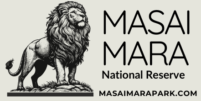Supporting avian species conservation in the Masai Mara can be a rewarding and impactful experience for safari-goers. By taking thoughtful actions, visitors can help protect the rich birdlife that plays a crucial role in the ecosystem. Here are expert tips and practical ways safari-goers can contribute to bird conservation in the Mara:
1. Choose Eco-friendly and Responsible Safari Operators
- Why it Matters: Not all safari operators prioritize conservation. By choosing eco-friendly operators that actively support bird and wildlife conservation efforts, visitors can ensure that their trip contributes to the protection of the environment.
- What You Can Do: Research operators that are certified by EcoTourism Kenya or other recognized organizations. Look for operators who minimize their environmental impact, use sustainable practices, and promote conservation education.
2. Support Local Bird Conservation Projects
- Why it Matters: Many local organizations in the Masai Mara focus on bird conservation, such as vulture rescue and rehabilitation programs, wetland restoration, and community engagement initiatives.
- What You Can Do: Donate to or volunteer with conservation groups such as The Peregrine Fund or local vulture conservation projects. These organizations often run programs to protect endangered birds like vultures and eagles, which are critical to the Mara’s ecosystem.
3. Participate in Birdwatching Safaris
- Why it Matters: Birdwatching safaris generate revenue that supports both conservation and local economies. By showing interest in birds, safari-goers can help raise awareness of the importance of bird species in the Mara.
- What You Can Do: Opt for specialized birdwatching tours or incorporate birdwatching into your regular safari. Many professional guides have extensive knowledge of the bird species in the Mara and can provide insight into conservation challenges and successes.
4. Respect Wildlife Habitats
- Why it Matters: Birds, like all wildlife, rely on intact habitats for survival. Disturbing nests, flying drones, or loud noises can stress birds and disrupt breeding and feeding.
- What You Can Do: Stay on designated safari tracks to avoid disturbing sensitive areas, particularly wetlands and nesting sites. Use binoculars to observe birds from a distance without disrupting their natural behaviors. Refrain from using drones, as they can scare birds and other animals.
5. Support Anti-Poisoning and Anti-Poaching Efforts
- Why it Matters: Birds like vultures and raptors are highly vulnerable to poisoned carcasses left out to kill predators. These birds inadvertently consume the poison and die in large numbers.
- What You Can Do: Support initiatives aimed at reducing wildlife poisoning in the Mara, such as community education programs and efforts to reduce human-wildlife conflict. Educate yourself on the importance of vultures and report any suspicious activities, such as poisoned bait or poaching, to local authorities or conservation organizations.
6. Limit Single-use Plastics
- Why it Matters: Birds often mistake plastic debris for food, leading to ingestion, entanglement, and death. Plastic pollution also affects the health of the ecosystems they rely on.
- What You Can Do: Bring a reusable water bottle, avoid single-use plastics, and take all your trash with you. Encourage your safari operator and lodge to adopt sustainable waste management practices that reduce plastic use and promote recycling.
7. Engage with Local Communities
- Why it Matters: Many conservation challenges, including habitat destruction and poaching, are driven by local socio-economic factors. Engaging with local Maasai communities and supporting eco-tourism initiatives can help promote bird conservation while improving livelihoods.
- What You Can Do: Visit community-led conservation projects, contribute to local reforestation efforts, or purchase handicrafts from local artisans who engage in sustainable practices. Support local bird conservation programs that work directly with communities to preserve the Mara’s biodiversity.
8. Participate in Citizen Science Initiatives
- Why it Matters: Many conservation organizations rely on data from citizen scientists to track bird populations and monitor species health.
- What You Can Do: Join citizen science projects like eBird, where you can record bird sightings during your safari. This data helps researchers track species distributions, identify conservation priorities, and monitor the health of bird populations.
9. Educate Yourself and Spread Awareness
- Why it Matters: Understanding the challenges faced by avian species in the Masai Mara is the first step to supporting their conservation. The more people know about the threats birds face, the more likely they are to take action.
- What You Can Do: Learn about endangered and vulnerable species in the Mara, such as Rüppell’s Vulture and Grey Crowned Crane. Share your knowledge and experiences with friends, family, and on social media to raise awareness of the importance of bird conservation.
10. Support Habitat Restoration
- Why it Matters: The degradation of wetlands, grasslands, and woodlands in the Mara poses a significant threat to bird habitats, particularly for species like the African Jacana and Malachite Kingfisher.
- What You Can Do: Support habitat restoration initiatives, such as wetland conservation or tree-planting efforts, to ensure that birds have the environments they need to thrive. Some eco-lodges and conservancies offer opportunities for guests to participate in these restoration activities.
Conclusion: Your Role in Avian Conservation
Safari-goers have a unique opportunity to contribute to the conservation of the Masai Mara’s incredible birdlife. From supporting responsible tourism and local conservation initiatives to participating in birdwatching safaris and citizen science projects, every action counts. By making informed, eco-conscious choices, visitors can help ensure that future generations of safari-goers will be able to witness the awe-inspiring diversity of birds in the Mara for years to come.
